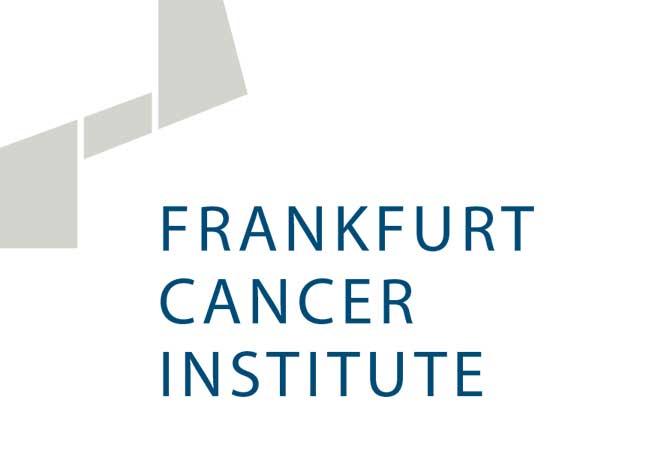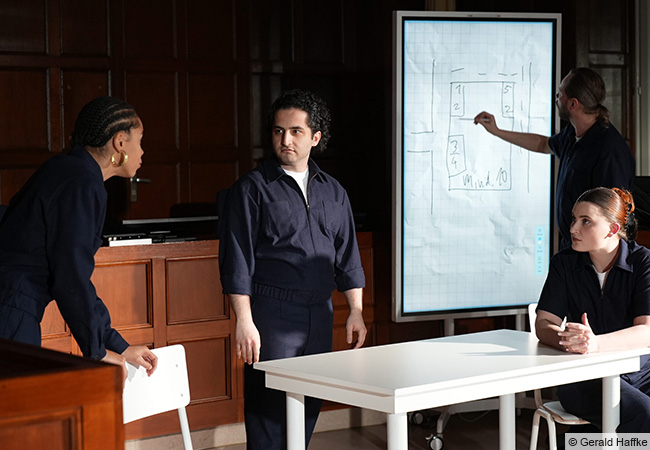Due to its great success in cancer research, the LOEWE center „Frankfurt Cancer Institute“ (FCI), which has been in existence since 2019, will receive another 18 million euros in state funding over the next three years, the Hessian Ministry of Higher Education, Research, Science and the Arts announced on December 9, 2022. Under the leadership of Goethe University Frankfurt, physicians and scientists from the Georg Speyer Haus Institute for Tumor Biology and Experimental Therapy, the Max Planck Institute for Heart and Lung Research, the Paul-Ehrlich Federal Institute for Vaccines and Biomedicines, and the German Red Cross Blood Donor Service’s Institute for Transfusion Medicine and Immunohematology are researching the mechanisms of tumor development, resistance formation, and new therapies together with other partners.

Goethe University President Prof. Enrico Schleiff congratulated the researchers on their success: „The renewed funding by the State of Hesse shows how well Goethe University, together with its partners in research and industry, is positioned in the highly competitive field of cancer research. In addition to qualitative advances in the understanding of important cancer types, our ‚Frankfurt Cancer Institute‘ has established complex technology platforms as well as very successful formats of project-oriented scientific and medical collaboration. These so-called clinical translation programs will now serve as a blueprint for cooperation in transregional cancer research centers.“
The FCI’s success concept can now be continued, Schleiff said. „We will use the next three years to drive forward the FCI’s continuation and thus permanently establish this beacon of cancer research in Frankfurt. Nothing better illustrates this continuation than the construction preparations currently underway at our Niederrad Campus for our own state-of-the-art FCI research building, which will provide our scientists with optimal working conditions.“
Prof. Florian Greten, spokesperson of the Frankfurt Cancer Institute, highlighted the FCI’s milestones of the past four years: „We have succeeded in developing new therapeutic concepts in our clinical translation programs on gastrointestinal tumors, acute myeloid leukemia (AML) and brain tumors. The first clinical trials based on these concepts have started. This means that, already in the FCI’s start-up phase, we have succeeded in mapping in one interdisciplinary center the entire process, from clinical questions to basic research and therapy development all the way to clinical trials.“
Commenting on the further development of the FCI, Greten said: „We will now build on our successes by establishing a fourth clinical translation metastasis program. We are convinced that through our numerous partners in Hesse, Germany and abroad, we can consolidate the FCI as the nucleus of cancer medicine in Hesse.“
Prof. Jürgen Graf, Medical Director and Chairman of Frankfurt University Hospital’s Board of Management, pointed to the shared tradition: „I congratulate all those in charge at the FCI on this success. This is another important step for university medicine in general in Frankfurt and for oncology in particular. They are part of a long successful tradition. Paul Ehrlich, founding professor of Frankfurt’s university medicine and Nobel Prize winner, developed the first chemotherapies. Ever since then, many important impulses for oncological research and medical care have come from Frankfurt.“
Graf emphasized the importance of collaboration for this work: „The FCI is just the latest embodiment of this tradition and stands for ensuring that research results directly reach the patient’s bedside. For this to happen, it is crucial for science and hospital to be on the same page. At the root of this success stands the close and excellent cooperation between Goethe University, Georg-Speyer-Haus and the other research institutions with Frankfurt University Hospital. With the decision to continue funding the FCI, all partners are now able to consistently pursue this path for patient benefit, allowing knowledge to become health.“







